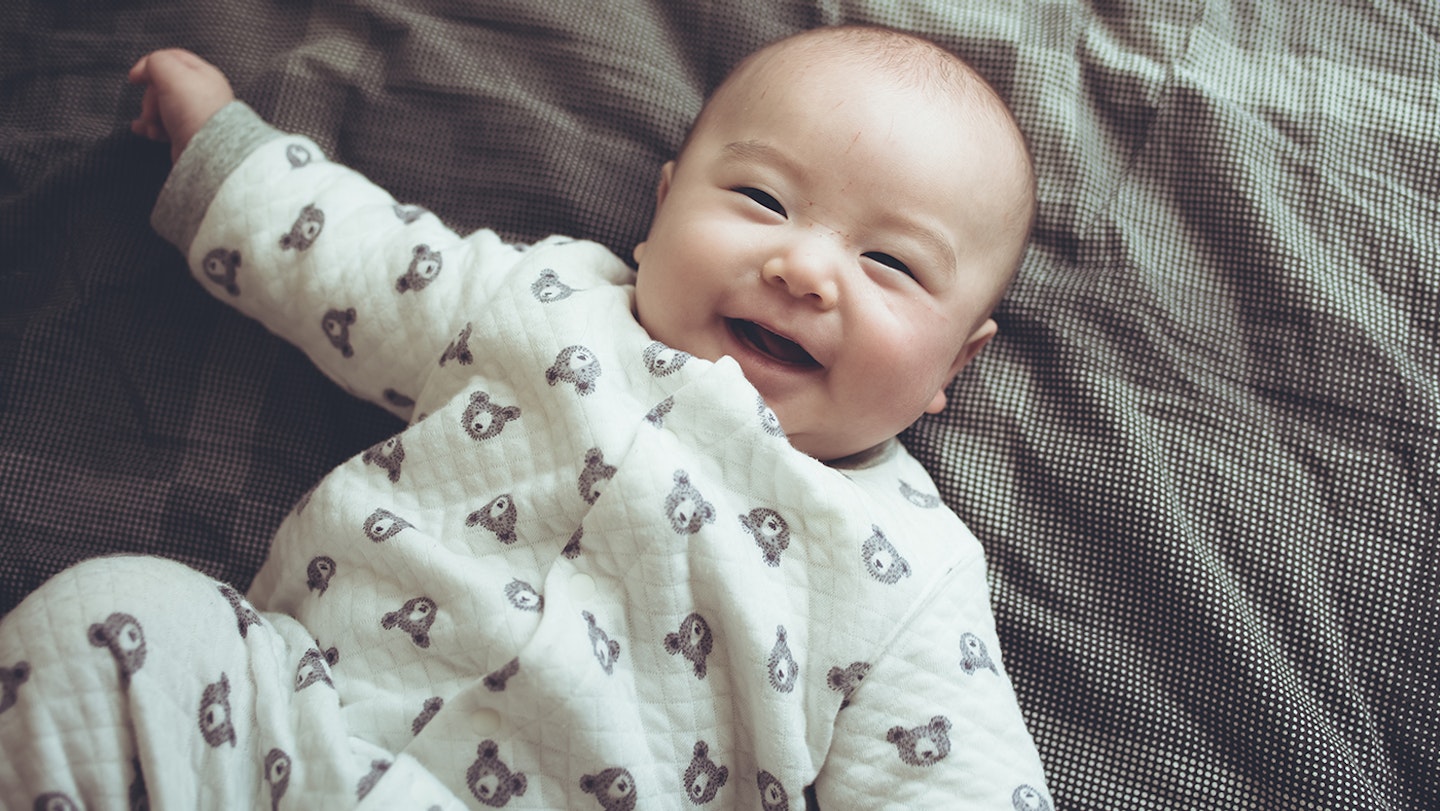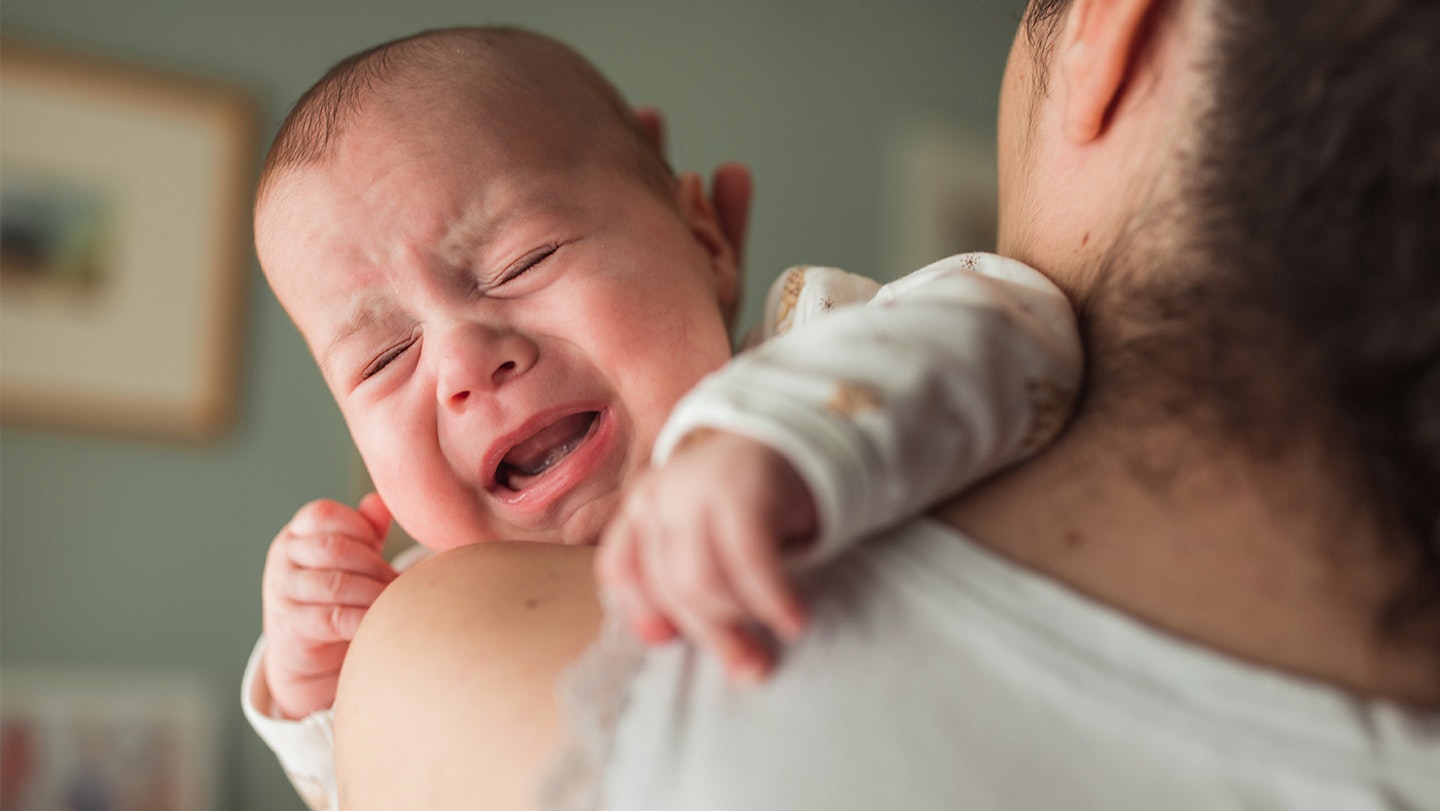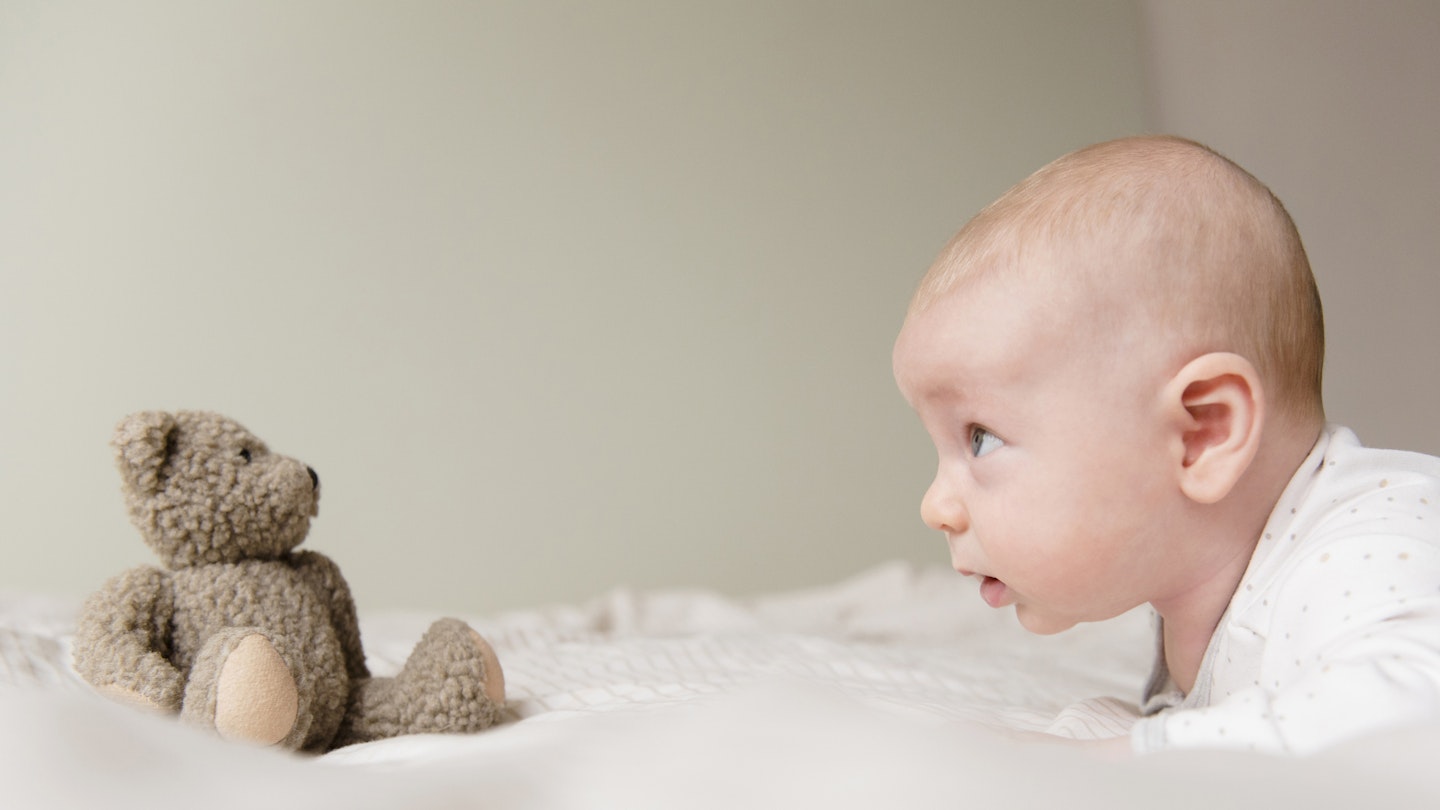We’re sure that you have plenty of questions about your 8 week old baby's development. From sleep to their weight, here’s what to expect as your 2-month-old baby reaches this exciting baby milestone.
How much will my 8-week-old baby be sleeping?
While your baby is still likely to be waking up in the middle of the night, they should be starting to sleep in solid blocks of five to six hours at night. Their daytime naps should be less frequent but longer, which is useful if you do want them to sleep through the night.
"Your 2-month-old baby may sleep for about 14-16 hours in total per day, with some naps lasting longer than others," says Susan Hogan, midwife and co-founder of The Baby Academy. This is notably less than the 18 hours they slept in those first precious few weeks.
Your 8-week-old baby and food
"Your 8-week-old baby will likely feed 8-10 times a day," Susan explains. "They will feed well at these feeds if being breastfeed. And if formula feeding they will feed approximately four to six oz per feed.
As your baby nears two months old, they will likely have gained between two and three pounds, which means all that feeding has been paying off. They will continue to have growth spurts and need more food, but they’re still in control of how much they should and shouldn’t eat so it’s important to continue to follow their lead.
A good guideline is 150-200ml per kilo of their weight. If you’ve started expressing, you can keep a better track of how much your baby is eating. However, if you’re mainly breastfeeding, our best advice is to follow your baby’s lead.
How much should an 8-week old baby weigh?
Your baby will likely have gained between two to three pounds weight since birth and will be measured at their first check-up with a healthcare professional.
"On average, babies at this age weigh between 4.5kg-6kg… however this will always be led by their initial birth weight," reminds Susan.
How much should an 8-week-old baby be pooing?
Now that your baby has grown about two inches and gained about three pounds, they’ve surely been feeding a lot, and therefore pooing a lot. However, if you’re worried your baby’s nappy changes are not regular enough, remember that between one and ten poos per day is still normal.
If they’re going less than three times a week, and are clearly in pain while filling their nappy, they may have constipation and should be taken to a doctor.
How should an 8-week-old baby be physically developing?
By two months old, your baby will have grown about two inches and their brain is on the way to that milestone too. All the growing and maturing will be taking a toll on their body, which means fat pads may be forming in their cheeks as their muscles get used to feeding.
Changes in your baby’s hair are also a real possibility, whether they were born with some and it’s falling out or born without and it’s growing.
Research psychologist and child development Dr Amanda Gummer says: "engaging your baby in sensory experiences like playing with texture toys or listening to soft music can help stimulate their senses,"
"Responding to their vocalisations and facial expressions encourages social interaction and language development."
Your baby is discovering their arms and legs now too, figuring out how everything works way before baby milestones such as baby rolling over or sitting up, which means lots of reaching and kicking.
"Your 2-month-old baby may start to hold their head up for short periods of time when on their tummy or being held upright," says Susan. Make sure you still support baby's head as much as possible through, until they can support themselves for longer stretches.

How should a 2-month-old baby be cognitively developing?
Dr Amanda says: "As your baby approaches the two month mark, you'll notice they become more alert and responsive to their environment."
She adds, "each baby develops in their own unique way, so don't feel bad if your baby takes a little longer to reach milestones than others."
While your baby won't exactly start talking yet, "at 8 months old, baby will begin to start humming, cooing and gurgling," says Susan. "Now they are beginning to communicate with these noises, they tend to cry less often."
If your baby has started smiling, they will likely be showing off their gums to everyone, whether it’s you, their siblings or strangers in the street. "Babies may start to recognize familiar faces," says Dr Amanda, "they might also show preferences for certain toys or activities."
Since they’re more alert for longer and can focus further now, they’ll be fixated on different colours and patterns. Your baby's hearing should also be improving, and they will soon be able to distinguish between different voices.
Being around lots of people will help your baby’s social skills, especially if they have family members who can play gently with them. However, don’t overstimulate them and ensure they get some peace and quiet too.
What health concerns might an 8-week-old experience?
Colic: A condition that affects up to half of young infants, colic in babies is a pattern of crying that is defined as as repeated episodes of excessive and inconsolable crying. Colic is not harmful to your baby although it can be distressing to deal with. There are some things you can do to help your baby cope with colic, such as making sure you burp them after feeding, baby tummy time, or using a specifically designed colic bottle if you bottle feed.
Nappy rash: A common problem for babies that most will experience at one point or another, nappy rash is caused when your baby’s skin becomes irritated due to prolonged contact with poo and wee. Thankfully, it can easily be helped with a nappy rash cream which you can pick up online or pharmacies.
Ear infections: Ear infections occur when bacteria or a virus gets inside the middle ear, which then becomes inflamed and painful. As your baby can't tell you their ear hurts, look for symptoms such as a raised temperature, refusing feeds or tugging at their ear.
It's important to monitor your baby's health and seek medical attention if you have any concerns.

What jabs should a 2-month-old baby have?
It’s finally time for the 8 week vaccinations! Don’t worry, we have some great tips to ease your fears and make the appointment as stress-free as possible for the both of you.
In this first appointment, your baby will receive their first dose of the 6-in-1 injection against diphtheria, hepatitis B, Haemophilus influenzae type b, polio, tetanus and whooping cough. Your baby will need a booster of this vaccine at 12 weeks old and 16 weeks.
Then, they’ll get their Rotavirus vaccine (which is a common cause of diarrhoea and sickness) and Meningococcal Group B (MenB) which protects against things like meningitis and sepsis.
They will receive these vaccinations either by injection or for rotavirus orally (a liquid dropped into their mouth). The injections are given in their upper thigh, one injection for each leg. Despite sounding traumatic, it should only take a few seconds.
If your baby has a cough or cold, the immunisations can still go ahead, however if they have a fever, diarrhoea or are very unwell the vaccinations may be postponed.
One particularly likely scenario is that your baby may get a fever from the meningitis B vaccine. The nurse giving the immunisations may advise you to give them infant paracetamol afterwards.
Your mental health: Postnatal depression
If you're feeling overwhelmed by guilt or feelings of failure or like everything could go wrong and it’s all your fault, then you may be experiencing postnatal depression. It’s very normal, with one in ten women suffering. It’s important to understand the signs and have a chat to your GP if you recognise any of the symptoms mentioned.
About the expert
This article contains expert advice from midwife and co-founder of The Baby Academy, Susan Hogan. Sue’s main mission in all of the work she does is "supporting new families, helping them to feel confident and in control during their pregnancy, their birth and as they grow as a family unit."
Dr Amanda Gummer is the MD and Founder of FUNdamentally Children and Dr Gummer's Good Play Guide. She is a research psychologist and author, who promotes the value of play and positive parenting in child development.
A journalist since 2015, Emily Gilbert is the Features & Reviews Editor for Mother&Baby and has written for the website and previously the magazine for seven years. Emily writes about everything from the top baby products to pregnancy, fertility and maternal mental health. Specialising in product reviews, Emily is the first to know about all the exciting new releases in the parenting industry.
